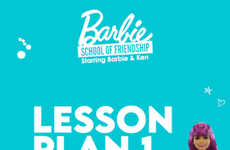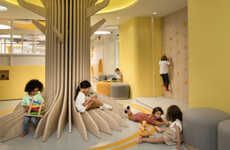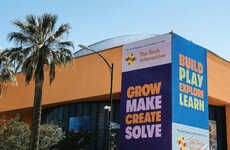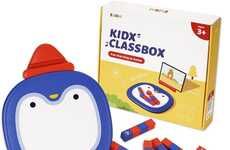
This Preschool in Germany Has Students Vote on Major Decisions
Mary Van Puymbroeck — July 7, 2017 — World
References: sueddeutsche.de & thelocal.de
Dolli-Einstein-Haus in Pinneberg Germany is operating the first democratic kindergarten in Germany.
In Germany, kindergarten begins at age three. Students in the preschool class are able to vote on communal issues like food and toy options. Kids will place small glass stones in a bucket to cast their vote. According to the school, this system was put in place to teach children about the importance of democratic rights early on in life. Votes happen once a week where decisions that determine the next flavor of cake to be brought in, or type of toy to be purchased for the playground, are decided.
Kristen Alheit, the state social affairs minister, gives strong praise for the initiative, "People can and should learn about democracy, when kids take part and are taken seriously, that shapes them for life."
In Germany, kindergarten begins at age three. Students in the preschool class are able to vote on communal issues like food and toy options. Kids will place small glass stones in a bucket to cast their vote. According to the school, this system was put in place to teach children about the importance of democratic rights early on in life. Votes happen once a week where decisions that determine the next flavor of cake to be brought in, or type of toy to be purchased for the playground, are decided.
Kristen Alheit, the state social affairs minister, gives strong praise for the initiative, "People can and should learn about democracy, when kids take part and are taken seriously, that shapes them for life."
Trend Themes
1. Democratization of Decision-making - By involving young children in voting and decision-making processes, there is potential to disrupt traditional power structures and create more inclusive environments.
2. Early Education for Civic Engagement - Integrating lessons on democracy and civic engagement in early education can help instill values that shape children into engaged and active citizens in the future.
3. Innovative Teaching Strategies - Implementing unconventional teaching strategies like this democratic kindergarten can open up new opportunities for educators to engage and inspire young learners.
Industry Implications
1. Education - The democratic kindergarten model can be applied to other areas of education to create more inclusive and participatory learning environments.
2. Childcare Services - Childcare providers that integrate democratic decision-making processes could potentially attract parents who value active participation in their child's education and development.
3. Government - By promoting democratic engagement and participation at an early age, governments can potentially cultivate a more informed and engaged electorate in the future.
2.4
Score
Popularity
Activity
Freshness























